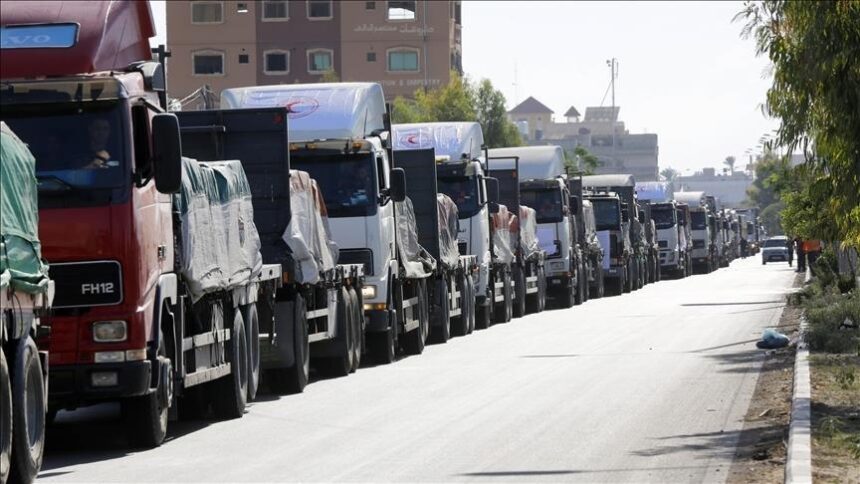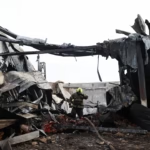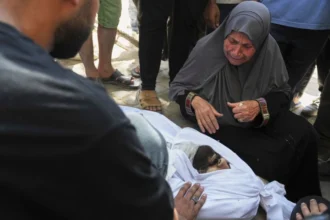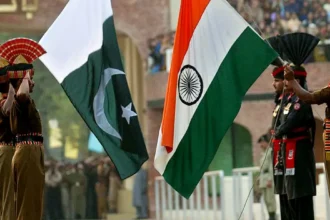United Nations humanitarian officials confirm over 630 trucks carrying aid have entered Gaza as part of the Israel-Hamas ceasefire deal. The ceasefire, which took effect on Sunday, January 19, saw Israel free 90 Palestinian prisoners in exchange for the three Israeli hostages.
The latest ceasefire deal, brokered by Egyptian and Qatari mediators with the backing of the United States, comes after 15 months of intense warfare that began on October 7, 2023. The agreement includes a 42-day ceasefire and the release of an initial 33 hostages, with subsequent releases to follow during this period. In exchange, Israel is expected to release around 1,000 Palestinian prisoners.
United Nations Humanitarian Affairs and Emergency Relief Coordinator Tom Fletcher announced on X that over 630 trucks carrying humanitarian aid entered the Gaza Strip.
In an X statement, Tom Fletcher said, and I quote: “As the ceasefire moved into force today, humanitarian aid moved into Gaza as part of a prepared surge to increase our support to survivors.
Fletcher highlighted that at least 300 trucks were carrying assistance to the north.
“There is no time to lose,” Fletcher stressed, pointing to the “staggering” humanitarian needs after 15 months of “relentless war.”
“We recognize the logistical challenges facing those delivering this aid, including mountains of rubble and unexploded remnants of war. The safety of all civilians, including aid workers, remains our top priority,” Tom Fletcher added.
The UN chief also used the opportunity to call on countries “with influence over the parties” to ensure the aid reaches those it was intended for.
While the entry of over 630 aid trucks is a significant achievement, it is essential to acknowledge that this is merely a drop in the ocean. The Gaza Strip has come under devastating destruction in the last 15 months, with over 46,000 Palestinian lives lost and over 800,000 displaced, according to the Gaza health ministry, resulting in a crippling humanitarian crisis that demands a more comprehensive and sustained response. The international community must do more to address the root causes of this crisis, including the occupation and the restrictions on movement and access.















